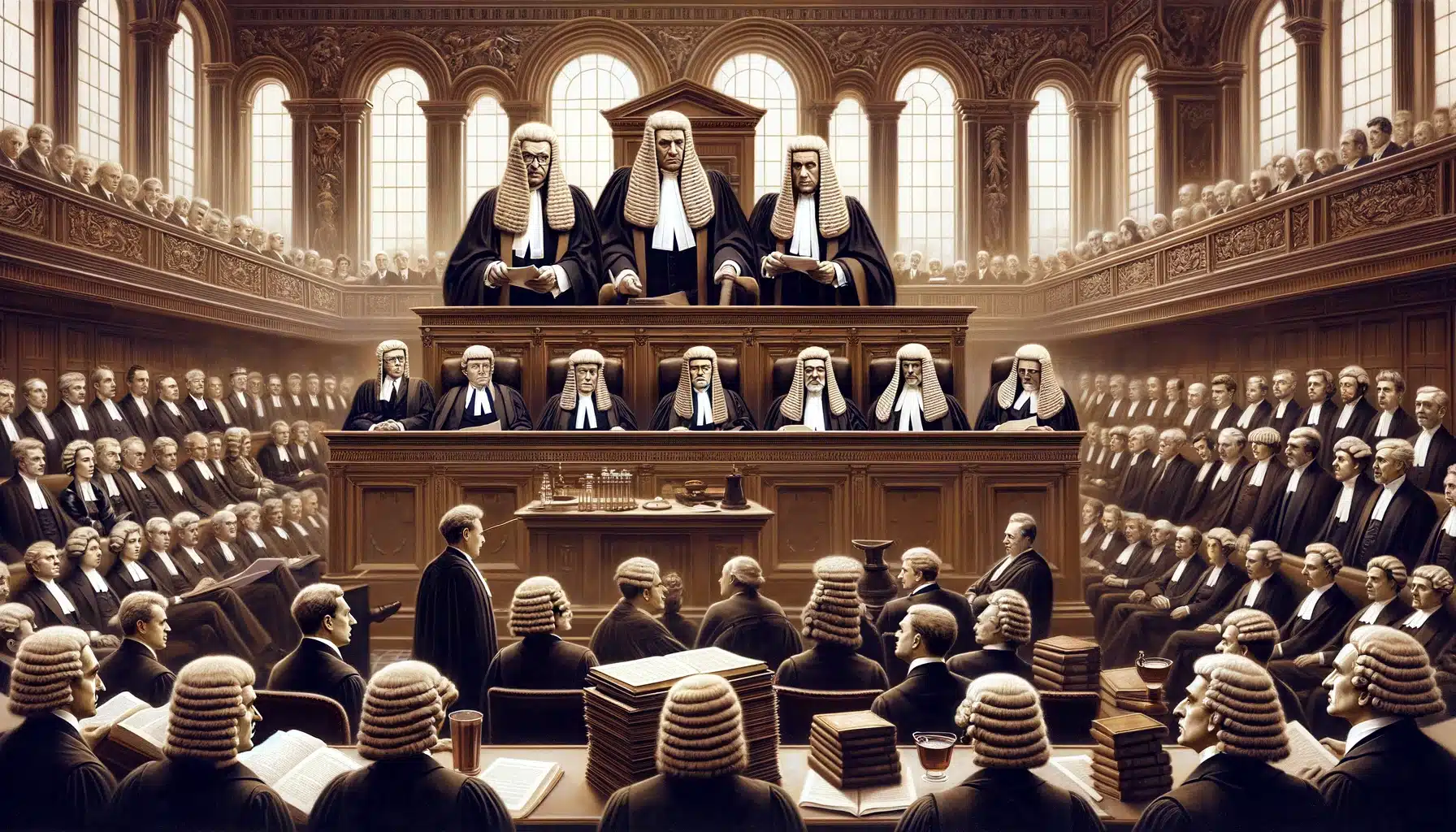Memorandum and Articles of a company are presumed to be notice to the public.

Citation: 20 SLR 244
Date of Judgement: 12th December, 1882
Court: House of Lords
Bench: Lord Selborne, Lord Blackburn, Lord Bramwell, Lord Fitzgerald, Lord Watson
Facts
- The Oakbank Oil Company was established under the Companies Act.[1] Nominal capital stood at £20,000, divided into 400 shares valued at £50 each.
- On November 16, 1869, the capital was augmented by £20,000 through the addition of another 400 shares, each valued at £50. Subsequently, via a special resolution on February 21, 1873, it was decided to restructure the capital into 40,000 shares, each valued at £1.
- However, in 1875, a further increase in capital by £20,000 occurred, introducing new £1 shares. These shares were only called up to the extent of 5 shillings each. Consequently, out of a total of 60,000 £1 shares, 40,000 were fully paid-up, while the remaining 20,000 were paid up to the extent of 5 shillings each.
- Despite this, the company resolved to declare dividends based on a certain percentage of the paid-up capital.
- The respondent, deeply affected by the decision, informed the company that as the recent purchaser, he should not face discrimination and requested equal dividend payment regardless of the paid-up capital. He stressed that the directors are obligated to adhere to the Articles of Association (AOA) of the company. Due to not being a registered shareholder, the respondent could not partake in the customary resolution passed on May 17, 1881.
- Nonetheless, a special arrangement was subsequently made between the company and the respondent.
Decision of the 1st Division Court
The presiding judges of the First Division Court, Lord Shand and Inglis, ruled in favor of the respondent. They instructed the appellant to distribute the dividend based on the proportion of shares held by each member, without considering the amount paid-up on those shares. Although the court acknowledged the inequitable nature of this interpretation, it did not affect the ruling, as it was deemed to be in accordance with the true construction of the Articles of Association (AoA).
Key legal issues discussed
1. Whether the holder of the shares is entitled to claim that all dividends declared shall be declared in proportion to the number of shares held by members without regard to the amount paid upon said shares?
Yes
Lord Selborne insisted that the contract between the parties and the articles of associations of the company shall be honored.[2] He argued that each party must be taken to have made himself acquainted with the terms of the written contract contained in the article of associations. “A dividend to be paid to the members in proportion to their shares with regard to the amount paid”.[3] Lord Blackburn also pointed out that a shareholder is to be paid no more than his proportion upon which he has paid up.[4] The court strictly relied on the Article of association of the company and based its decision on the interpretation of the clauses of the AOA. The AoA reads “The directors may, with the sanction of the company in general meeting, declare a dividend to be paid to the members in proportion to their shares.”[5]
Decision of the House of Lords
The matter was heard by a 5-judge bench of the Privy Council. It unanimously decided in favor of the respondent and thus affirmed the decision of the lower court. Each judge wrote their opinion. It has been held that anyone dealing with the Company is presumed not only to have read the memorandum and Articles, but understood them properly. Thus, Memorandum and Articles of a company are presumed to be notice to the public. Such a notice is called Constructive notice.
[1] Companies Amendment Act, 1867.
[2] Somes v Currie 1 K. & J. 605.
[3] H.L. (Sc.) 1882 Dec. 12 Pg. 69.
[4] H.L. (Sc.) 1882 Dec. 12 Pg. 75.
[5] Clause 71 AoA Oakbank oil Co. (ltd.)


